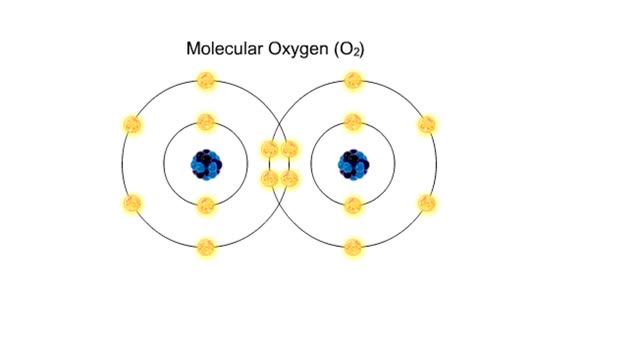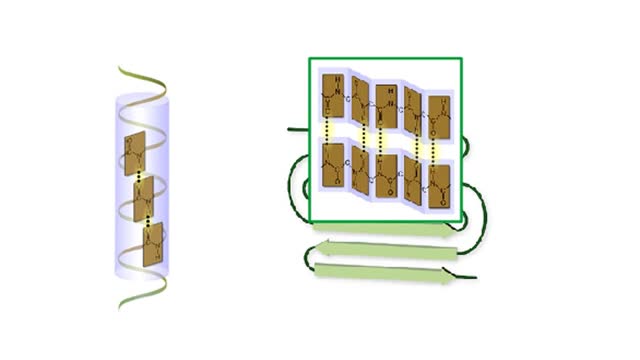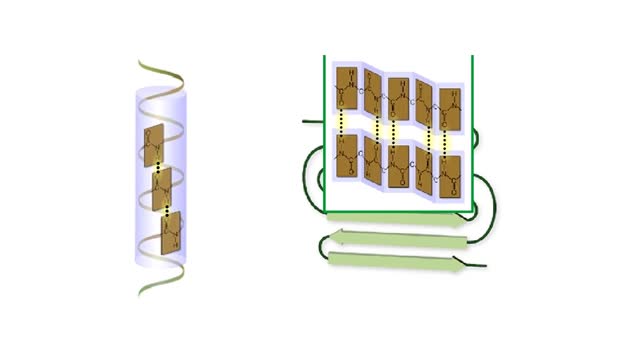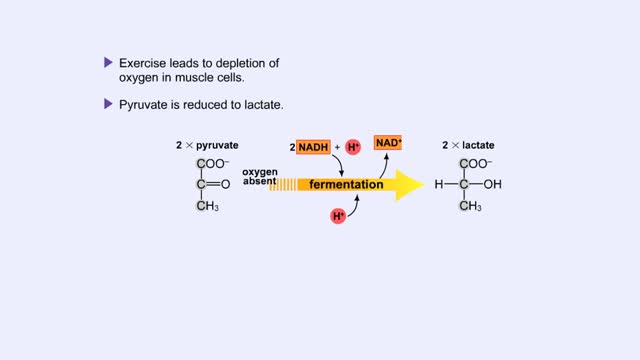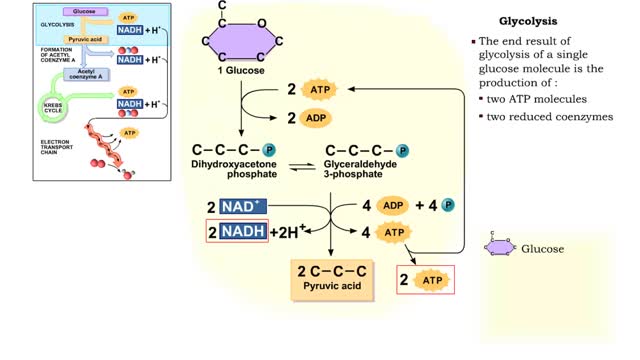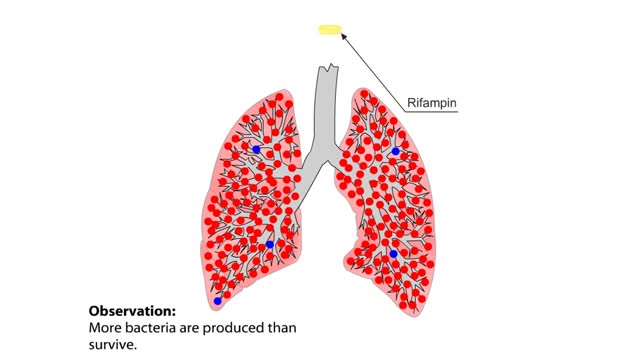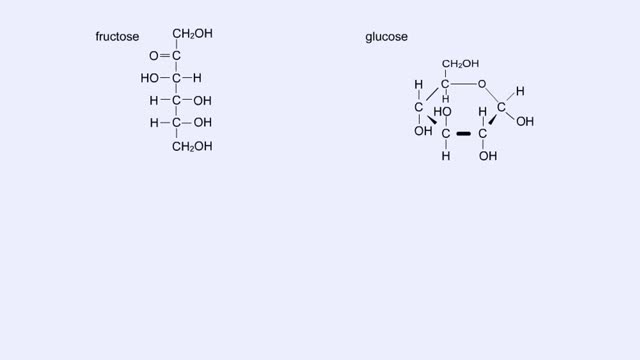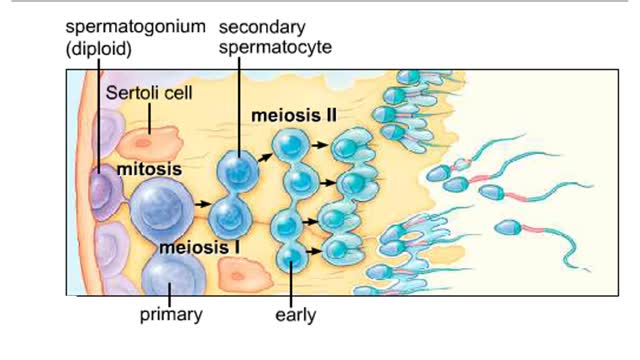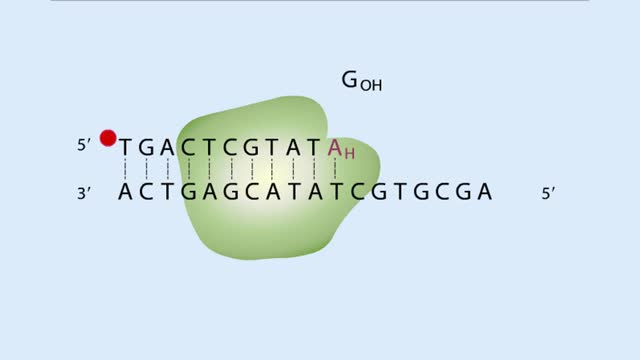Search Results
Results for: 'Single Strand of DNA'
Bond in biological molecules (Ionic, Covalent and Hydrogen bonds)/ How atoms bond?
By: HWC, Views: 8432
Sodium atoms and chloride atoms have unfilled orbitals in their outer shells. The lone electron in the outermost shell of a sodium atom can be pulled or knocked out. This ionizes the atom. It is now a positively charged sodium ion. A chlorine atom has an electron vacancy in its outer shell and...
Protein Secondary and Tertiary Structures - Animation
By: HWC, Views: 7334
Amino acid sequence dictates a protein's final shape. The presence of certain amino acids favors a pattern of hydrogen bonding that causes part of the polypeptide chain to coil and twist into an alpha helix. The presence of other amino acids enables hydrogen bonding between strand like r...
Secondary and tertiary levels of protein structure Animation
By: HWC, Views: 4990
Amino acid sequence dictates a protein's final shape. The presence of certain amino acids favors a pattern of hydrogen bonding that causes part of the polypeptide chain to coil and twist into an alpha helix. The presence of other amino acids enables hydrogen bonding between strand like re...
Fermentation - When Oxygen Is Absent, Pyruvate to Lactate & Pyruvate to Ethanol
By: HWC, Views: 10614
Pyruvate is the end product of glycolysis. If oxygen is present, pyruvate enters the mitochondrion where further energy yielding reactions of the Krebs cycle will take place. However, if oxygen is not present, pyruvate will enter a pathway called fermentation. This pathway regenerates NAD+ fro...
By: HWC, Views: 11445
The first reactions involve a single 6-carbon glucose sugar undergoing phosphorylation using two ATP molecules and resulting in two 3-carbon compounds. • The rest of this pathway involves an oxidation reduction reaction, forming two reduced coenzymes, and generation of four ATP molecules. ...
Mycobacterium tuberculosis: Drug Resistance and Natural Selection
By: HWC, Views: 9891
The evolution of drug resistance in microorganisms, such as M. tuberculosis, that cause human diseases is of particular concern to biologists. When Mycobacterium tuberculosis infects the lungs of humans, it causes the disease tuberculosis, also called TB. Once infected, the lungs act as a new...
By: HWC, Views: 10893
Here are the molecular structures of three simple sugars: glucose, ribose, and fructose. Look at these simple sugars and identify what characteristics they all share. As you can see, all of the carbohydrates have carbon, hydrogen, and oxygen in a ratio of 1:2:1 and there is always a double bo...
By: HWC, Views: 9238
Spermatogenesis takes place inside the seminiferous tubules. Diploid spermatogonia located near the outer edge of the tubule divide mitotically to form primary spermatocytes. The first meiotic division produces secondary spermatocytes with a haploid number of duplicated chromosomes. T...
DNA Sequences - Dideoxy Sequencing
By: HWC, Views: 10485
A short, radiolabeled primer is annealed to the single-stranded DNA to be sequenced. The DNA serves as a template for in vitro DNA synthesis. The DNA-primer mixture is split into four separate tubes. DNA polymerase and a solution of dNTPs are added to each tube. One of the four 2',3' dideoxy-N...
Advertisement



